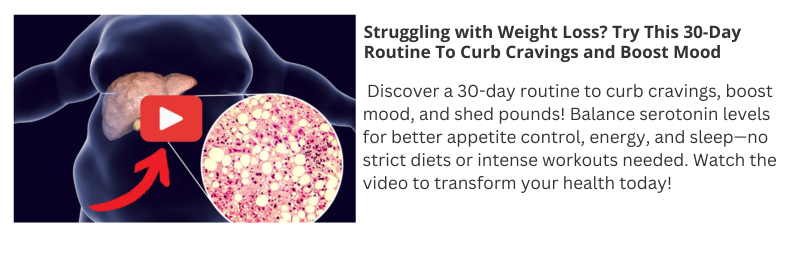Unexpected weight loss can be alarming for many people. While it might seem like a dream for some to shed pounds without trying, sudden or unexplained weight loss can signal underlying health issues.
Losing more than 5% of your body weight within six to twelve months without changing your exercise or diet habits may be concerning.

Even when one feels fine, rapid weight loss could mean something serious is happening in the body. Conditions like thyroid problems, diabetes, or cancer may lead to such changes. Attention to other symptoms, like fatigue or changes in appetite, helps in identifying when to seek medical advice.
Exploring the reasons behind unexpected weight changes involves understanding the body’s signals and addressing root causes. Professional guidance can safeguard health and ensure effective management of any underlying issues.
Key Takeaways
- Sudden weight loss over 5% is alarming.
- Check for other symptoms like fatigue.
- Seek medical advice for unexpected changes.
Understanding Weight Loss
Weight loss can stem from different causes, which can have varying implications for health. It’s crucial to distinguish between intentional efforts aimed at improving wellness and unintentional changes that might signal underlying health issues.
Defining Intentional vs Unintentional Weight Loss
Intentional weight loss is a conscious decision to reduce weight, often for better health. This might involve structured diet plans or exercise programs. Many set goals of losing 5-10% of their body weight to reduce risk factors associated with conditions like diabetes or heart disease.
Intentional efforts usually have a solid plan and support system, such as guidance from a doctor or nutritionist.
Unintentional weight loss occurs without planned changes to diet or activity. It can be concerning, as it sometimes signals medical problems. Common causes are illnesses such as thyroid disease, digestive disorders, or chronic infections. Some might experience reduced appetite or malabsorption, leading to sudden weight decrease.
Significance of Sudden Weight Loss
Sudden weight loss could be a red flag. Losing more than 5% of body weight over 6-12 months without trying can indicate serious health issues. It is essential to consult a healthcare provider in such cases to rule out conditions like cancer, diabetes, or hormonal imbalances. These conditions may not show symptoms immediately but can lead to significant health consequences.
Evaluating the reasons behind such changes helps determine the right course of action. Tests like blood work and imaging might be necessary. Understanding these potential triggers can aid in seeking timely medical attention, ensuring the individual’s health remains a priority.
Potential Causes of Weight Loss
Weight loss can occur for various reasons, from underlying medical conditions to digestive disorders. Many of these causes are related to changes in the body’s metabolism or nutrient absorption capabilities, which can significantly impact a person’s health.
Medical Conditions Related to Weight Loss
Numerous medical conditions can lead to unintended weight loss. Cancer often causes weight loss as the body requires more energy than usual. Patients may experience a reduced appetite and increased metabolism. Thyroid problems, such as an overactive thyroid, result in rapid metabolism and weight loss.
Infections like HIV can lead to a decrease in weight due to the body’s struggle to fight off illness. Diabetes might cause weight loss because the body can’t use sugar properly, leading to fat and muscle loss. Addison’s disease affects hormone production, which can also decrease appetite and weight.
Impact of Digestive Disorders on Weight
Digestive disorders often play a crucial role in weight loss due to malabsorption issues. Celiac disease is an autoimmune disorder where gluten intake damages the small intestine, leading to poor nutrient absorption. This results in weight loss and deficiencies in essential nutrients.
Additionally, other gastrointestinal issues like chronic diarrhea or inflammatory bowel diseases might reduce nutrient absorption, leading to unintended weight loss. Proper diagnosis and management are crucial for maintaining healthy body weight and ensuring adequate nutrient intake. These conditions can cause significant health impacts if not addressed promptly.
Symptoms and Complications
Unintended weight loss can indicate serious health issues. It’s crucial to differentiate between typical dieting results and symptoms that warrant attention. This section outlines key symptoms and potential long-term complications.
Recognizing Alarming Symptoms
Weight loss may be concerning when accompanied by symptoms like nausea, loss of appetite, and muscle loss. These can signal underlying conditions rather than healthy weight management.
Others might face difficulty chewing due to dental problems or medical treatments that require attention. Consistent issues should prompt a visit to a healthcare provider to rule out more serious causes.
Monitoring weight changes alongside these symptoms helps in identifying if the loss is problematic. The presence of numerous alarming symptoms suggests it’s time to seek medical evaluation for a thorough investigation.
Long-Term Health Complications
Significant weight loss can lead to malnutrition, which affects the body’s ability to function properly. Insufficient nutrient intake can damage organs and the immune system.
Potential complications also include muscle wasting, which can decrease strength and mobility. Eating problems due to conditions like cancer or chronic illnesses often exacerbate these effects.
Chronic issues might arise if the underlying problem goes untreated, impacting overall health and quality of life. Managing these health risks is essential for preventing further complications and maintaining a balanced lifestyle.
Diagnosing Unexplained Weight Loss
Diagnosing unexplained weight loss starts with a thorough health evaluation, which includes reviewing the patient’s medical history and conducting basic tests. If initial assessments don’t provide answers, doctors may recommend advanced diagnostic testing.
Initial Evaluations and Health Assessment
Doctors first gather information about the patient’s medical history. They ask about recent illnesses, changes in appetite, and any chronic conditions. Examining personal habits like diet and exercise can also offer clues.
Basic blood tests are often conducted to check for issues like anemia or thyroid problems. These tests help identify if there are any underlying medical issues contributing to the weight loss.
Doctors may perform a physical exam to look for noticeable physical changes. When required, they look into symptoms such as fatigue or stomach pain.
Advanced Diagnostic Tests
If initial tests don’t reveal the cause, advanced diagnostic tests might be necessary. A doctor might recommend imaging tests such as a CT scan or MRI. These tests can uncover hidden issues like tumors or internal organ problems.
Colonoscopy is an option when digestive issues are suspected. It helps examine the colon for abnormalities. Imaging tests are particularly important if there is concern about cancers or other serious conditions.
In some cases, doctors might monitor patients over time to see if symptoms change. This approach can help pinpoint less obvious causes of weight loss.
Treatment and Management
Addressing concerning weight loss involves a combination of medical interventions and lifestyle modifications. Each approach plays a crucial role in reversing or managing the condition effectively.
Medical Interventions
Medical interventions often involve consulting a healthcare provider to determine the underlying cause of weight loss. Physicians may prescribe medications to address specific health issues. For example, they might recommend prescription medications to improve appetite or treat depression, which can contribute to weight loss.
Regular check-ups and tests help monitor progress and adjust treatments as necessary. Healthcare providers might use treatments like nutritional supplements to ensure adequate intake of essential nutrients. Collaboration with specialists ensures a comprehensive management plan that caters to individual needs.
Lifestyle Modifications
Lifestyle modifications are essential for managing weight loss. Dietary adjustments can help in gaining or maintaining weight. Consulting a nutritionist to develop a balanced meal plan ensures proper intake of calories and nutrients.
Incorporating regular physical activity can also support muscle gain and improve overall well-being. Stress management techniques, such as mindfulness or yoga, can be beneficial as stress often affects eating habits. Building a support system with friends and family can encourage adherence to lifestyle changes and provide emotional support.
Preventive Measures and Early Detection
Monitoring weight and health through regular screenings is essential. Staying proactive can prevent many health concerns related to sudden or unhealthy weight loss. This involves a balanced diet, managing stress, and routine medical check-ups.
Importance of Regular Health Screenings
Regular health screenings are crucial in identifying potential health issues early. These screenings often include checking for underlying conditions that might lead to unhealthy weight loss. Cancer screenings can be particularly useful, as unexplained weight loss can sometimes be a sign of certain cancers.
Routine regular check-ups help in monitoring vital signs and body mass index (BMI), aiding in the early detection of weight-related issues. These periodic health checks allow healthcare providers to spot changes in weight patterns that might be troubling.
Blood tests and other diagnostic procedures can uncover deficiencies or diseases affecting weight. By consistently undergoing these examinations, individuals can work towards maintaining a healthy weight and overall well-being.
Adopting a Proactive Approach
A proactive approach to health involves maintaining a balanced diet and regular exercise. A diet rich in nutrients supports healthy weight maintenance and prevents dramatic weight changes. It is important to include a variety of foods to meet nutritional needs.
Stress management is another crucial element. High stress can lead to unhealthy eating patterns or rapid weight loss. Techniques such as meditation or yoga can help manage stress effectively.
Additionally, being vigilant about medical symptoms and seeking medical advice when unusual changes occur can prevent long-term health issues. This proactive mindset allows individuals to take control of their health, reducing the risk associated with unexplained weight loss.
Support and Coping Mechanisms
Addressing concerning weight loss involves understanding the role of emotional support and strategies to manage chronic weight loss. Effective coping mechanisms can aid in maintaining mental health while tackling this issue.
Emotional and Psychological Support
When facing chronic weight loss, emotional and psychological support is often crucial. Accessing mental health support can help individuals understand the underlying emotions tied to weight changes. Support groups provide an environment where people can share experiences and strategies, offering comfort and reassurance. Professional counseling might also be beneficial, as therapists can guide individuals in addressing anxiety or depression related to weight loss. Practical advice on nutrition and self-care routines can further help stabilize emotional well-being. Identifying and understanding personal triggers can empower individuals to navigate their emotions more effectively.
Strategies to Cope with Chronic Weight Loss
Coping with chronic weight loss requires practical strategies tailored to individual needs. Coping strategies might include regular consultations with dietitians to manage nutritional intake. This approach ensures that those affected are meeting their body’s needs despite weight loss challenges. For some, psychological burden and motivation can affect coping styles like avoidance or seeking support. Engaging in activities that relieve stress, such as yoga or meditation, can also be beneficial. Journaling may provide insights into eating patterns and emotional triggers, offering additional tools to manage weight healthily. Setting realistic goals and celebrating small achievements can also boost motivation and self-esteem.
When to See a Doctor
Recognizing when to visit a healthcare provider can be critical for addressing potential health issues. This section explores key warning signs and situations where professional advice or emergency care is necessary.
Consulting a Professional
Unexplained weight loss is a red flag to consult a doctor. Losing more than 5% of body weight within six months without changes in diet or exercise should not be ignored. Such weight loss could stem from health concerns like thyroid problems, diabetes, or cancer.
A healthcare provider can offer guidance through diagnostic tests, ensuring that any underlying conditions are identified. Regular monitoring and assessments by health professionals can help manage symptoms and prevent complications. Establishing a relationship with a doctor ensures prompt action when unusual weight changes occur.
Emergency Situations Requiring Immediate Care
Sudden weight loss paired with severe symptoms demands immediate medical attention. Warning signs include persistent dizziness, extreme fatigue, or severe abdominal pain. Such symptoms might indicate serious conditions needing urgent care.
In these situations, delaying a visit to the doctor could lead to worsening symptoms. Immediate evaluation can prevent potential life-threatening issues. If sudden weight loss and acute symptoms occur together, it’s crucial to seek emergency care promptly.
Prompt and decisive action in these scenarios ensures safety and quick response to potentially harmful conditions.
Frequently Asked Questions
Unexplained weight loss can be a sign of various health issues. Knowing when to seek medical advice and recognizing additional symptoms is important for health and safety.
What are potential medical reasons for unexplained weight loss?
Unexplained weight loss can be caused by health issues like hyperthyroidism, diabetes, celiac disease, and cancer. Mental health conditions such as depression and anxiety might also contribute.
Over what period of time is rapid weight loss a medical concern?
Rapid weight loss becomes concerning if a person loses 5% or more of their body weight in six to twelve months without a clear reason. Medical advice is recommended for this level of weight loss.
Why might someone lose weight without changing their diet or exercise habits?
Weight loss without lifestyle changes can occur due to problems like gastrointestinal disorders, infections, or metabolic changes. Hormonal imbalances and certain medications can also play a role.
At what point does unintentional weight loss warrant a visit to the doctor?
If someone notices significant weight loss over a few months without changes in diet or activity, it is advisable to consult a healthcare professional.
This is especially true if the weight loss is accompanied by other unusual symptoms.
Is there a threshold of weight loss that is considered dangerous?
A loss exceeding 5% of body weight over six months can be considered risky if not intentional.
In these cases, it is important to seek medical attention to identify potential underlying causes.
What symptoms, in addition to weight loss, may indicate a serious health issue?
Symptoms like fatigue, fever, digestive issues, and changes in appetite along with weight loss can signal serious health conditions.
If these symptoms persist or worsen, medical evaluation is necessary.

















